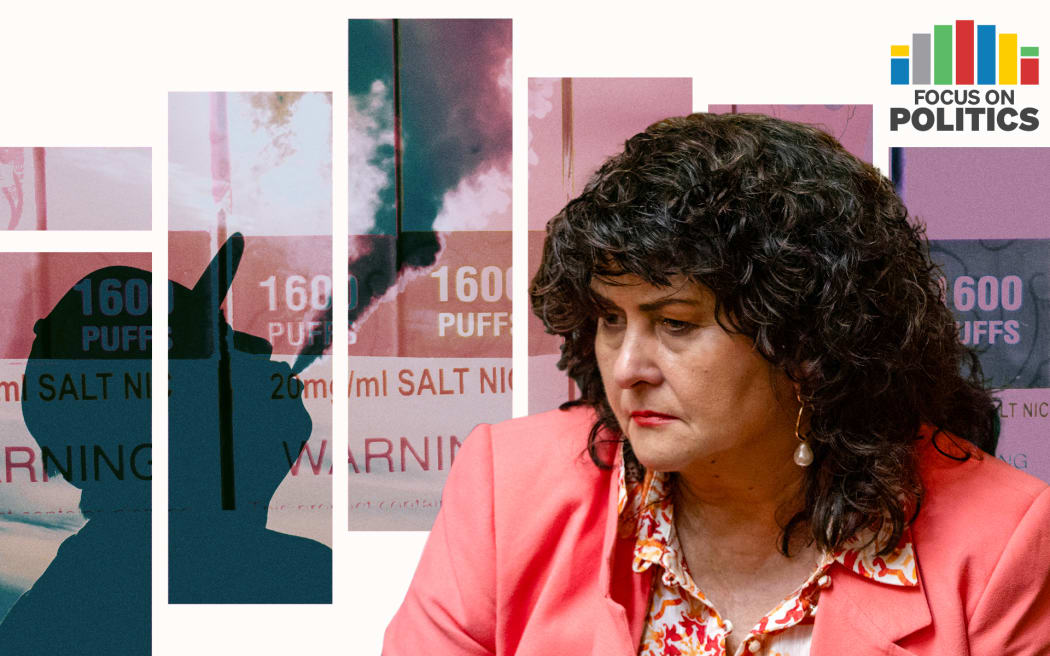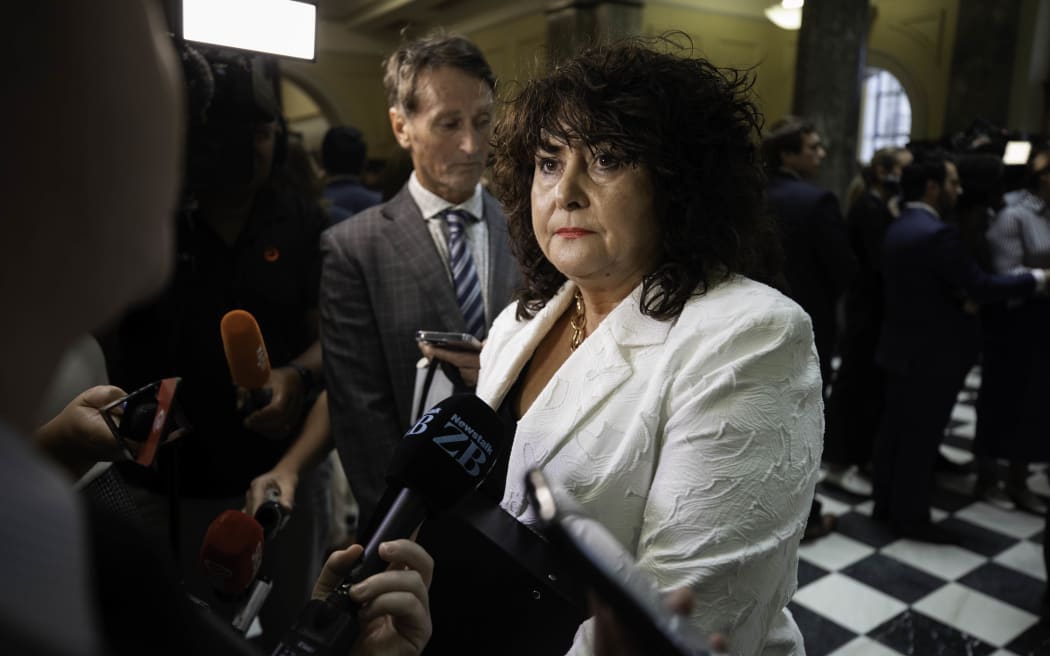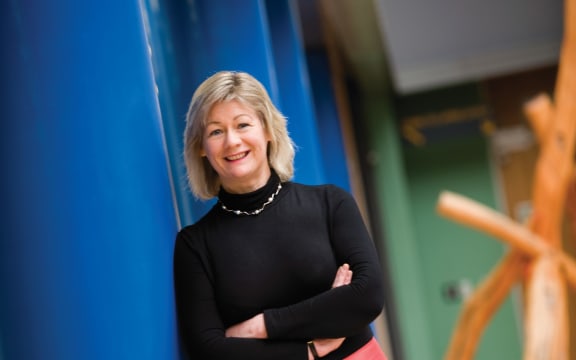
Associate Health Minister Casey Costello accepts compliance figures are not good for underage sales or illegal products, and says says she's "driving really hard" to "push enforcement" but this will take time. Photo: RNZ / Unsplash
"You cannot look at the regulations that are coming out and see that they favour anyone other than the tobacco industry" - Charyl Robinson
Successive governments have claimed crack downs on youth vaping but retailers are flouting the law, with just one prosecution on the books.
Retailers have until the end of the year to phase out single-use products, but academics say MPs' fears vape manufacturers will just adapt are justified.
Vapes, or e-cigarettes, were introduced as a smoking cessation tool - and while New Zealand's smoking rate has now fallen to historic lows, 16 percent of children aged 14 to 15 were regularly vaping last year.
While that's down 2 percent from 2022, it's a worry for many parents including Wellington mum Charyl Robinson, who says her eldest son is "hopelessly addicted" and went through withdrawals during pandemic lockdowns. She says it fractured relationships in the household, with outbursts, rage, violent behaviour: withdrawal symptoms amplified because young people are not equipped to deal with it.
Robinson teamed up with other mums throughout the country to set up Vape Free Kids NZ - an advocacy group fighting for tougher regulations - and while regulations have been tightened up, she says the fight has become "immeasurably harder" since the coalition came to government.
Associate Health Minister Casey Costello says it's "ridiculous and wrong" to say the tobacco industry has anything to do with her government's policies.
"Increased penalties need legislative change .... what I'm trying to do is as much as I can under this period, but right now we can do a lot around education and enforcement.

Associate Health Minister Casey Costello Photo: RNZ / Angus Dreaver
"We've been really happy with the fact that our young people aren't smoking ... we've achieved the victory on one side, we're now trying to get some balance around this."
Read more:
- Loopholes will be exploited in new vape rules - expert
- Government delayed vape rules to suit retailers, campaigners say
- Vaping crackdown: Government has no extra money for enforcement
- Disposable vapes to be banned, more restrictions on retailers announced
- Smokefree generation law scrapped by coalition government
The coalition implemented a nicotine limit and prescribed flavour descriptions in March, deferring the requirement to have removable batteries and child safety mechanisms to October.
The bending and breaking of rules seems pervasive. One need only travel about 50 metres from Parliament to buy an illegal vape. Enforcement officers carried out 767 compliance checks last year, issuing 79 infringement notices relating to vape products. Cases must, however, meet a public interest test to be prosecuted - and just one has met that threshold and reached the courts, with the accused fleeing the country. It's hoped that as fines increase, more prosecutions will meet the test.
A total ban on disposable vapes set to come in by the end of the year could be a game-changer, but the Ministry of Health says no country has actually managed to implement a complete ban on disposables. The legislation will need to be drafted carefully, but MPs from both sides of the aisle fear tobacco companies will simply find another way.
Otago University Professor of Public Health Janet Hoek researches vape and tobacco marketing and with tobacco companies' long history of circumventing regulations, she says concerns about loopholes are justified - and it's already happening. Costello confirmed "immediate workarounds" for some regulations by vape manufacturers.

Professor Janet Hoek Photo: Supplied
Charyl Robinson has long called for a cap on the total number of vape retailers, now 6000 and counting. Labour campaigned on cutting that to 600, a number National said during the election it would match, and go further by making vapes prescription only. Coalition partners ACT and NZ First had their own perspectives however, and Costello - from the latter party - argues reducing supply will not reduce demand when it comes to addiction.
Robinson says they've heard that from the minister before over concerns rural and low socio-economic areas would not have access to vapes for giving up smoking.
"So then we put to her what about the pharmacy model, not prescription model, pharmacy model - there's over 900 pharmarcies in the country, so that's 300-odd more retailers than what was promised.
"Her response to that was 'but no, there's people in rural communities and low socio-economic communities that won't even access a GP or a pharmacy'. And that's just patently not true, we've checked that out and 98 percent of our population have access to a pharmacy. It just seems like there's an answer for everything, everything we suggest that would reduce access for children and preserve the integrity of what they say they're trying to achieve which is smoking cessation."
Associate professor of marketing at AUT Sommer Kapitan has also warned that tobacco companies will rework their marketing to suit the regulations, and keep a customer base. She and Hoek both see value in curbing the number of retailers.
In this week's Focus on Politics, Political Reporter Anneke Smith looks at concerns vape manufacturers will find loopholes in new regulations.
Listen free to Focus on Politics on Apple Podcasts, on Spotify, on iHeart Radio or wherever you get your podcasts.


